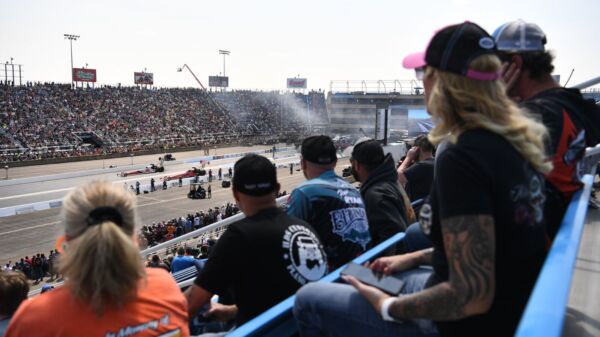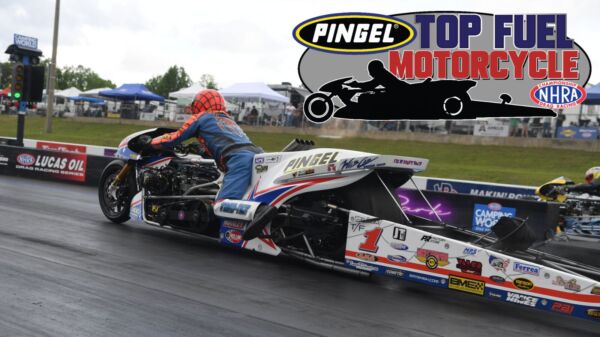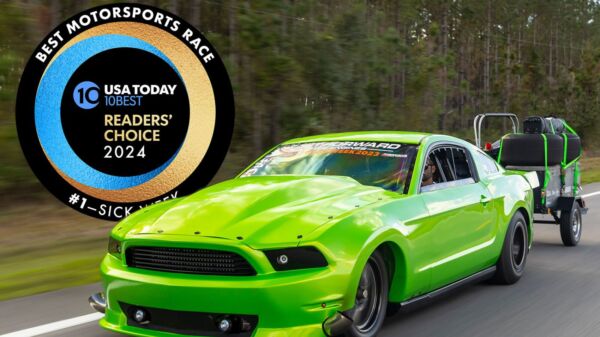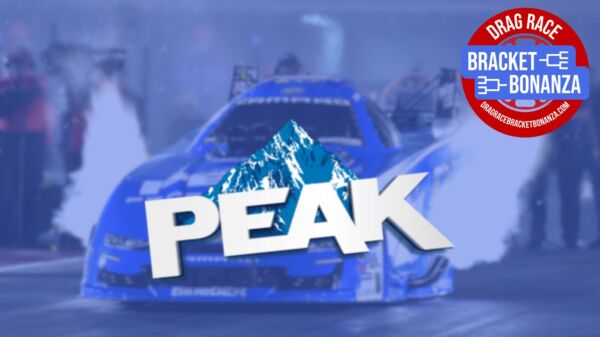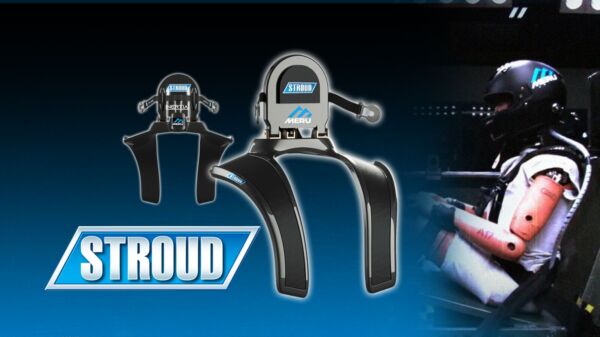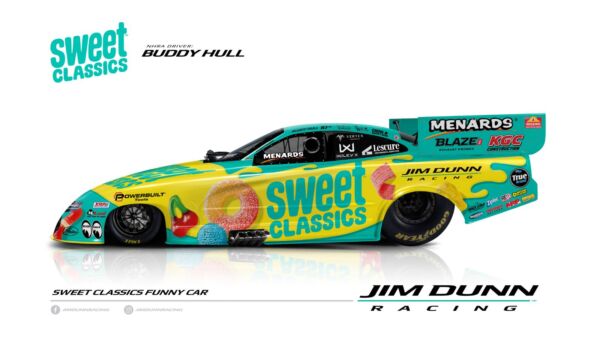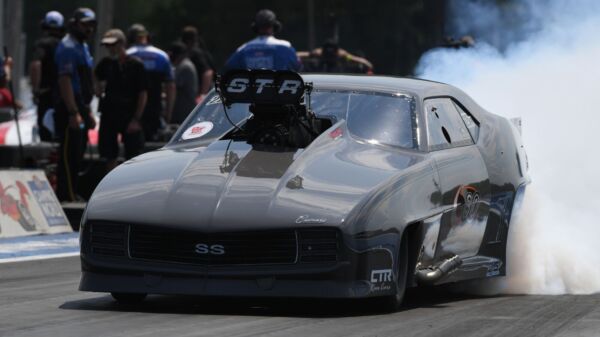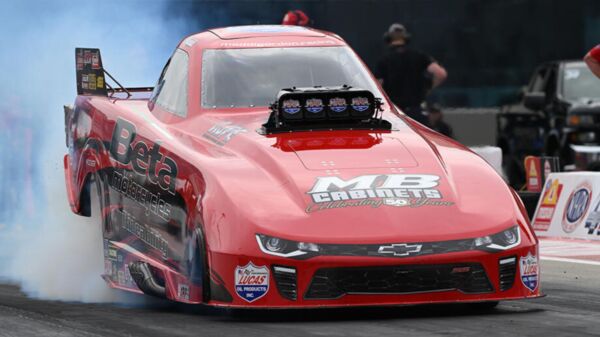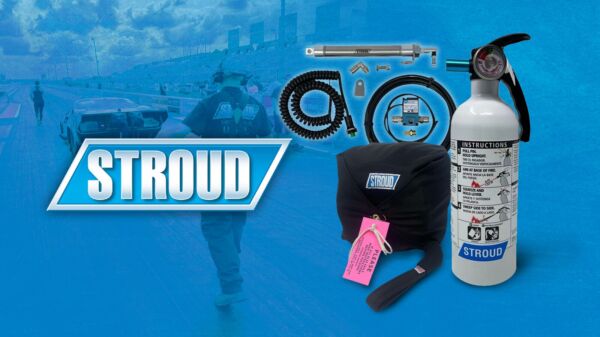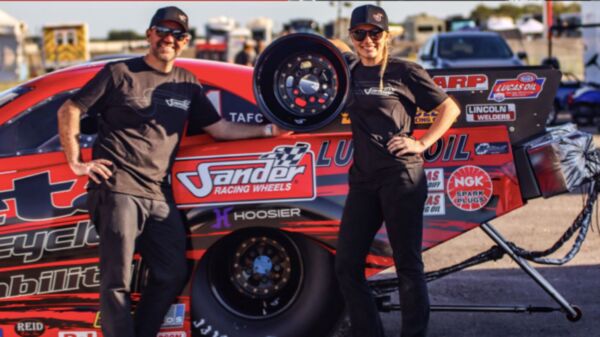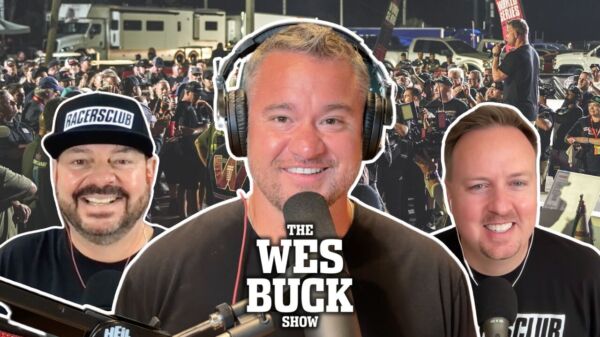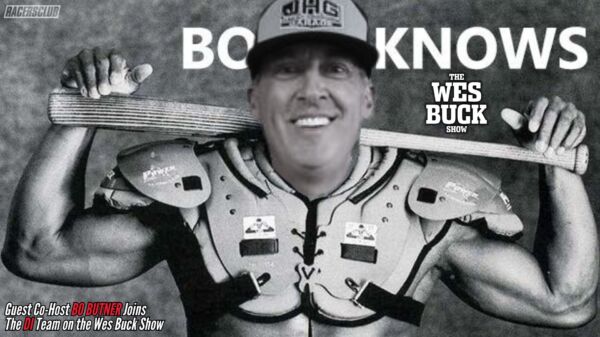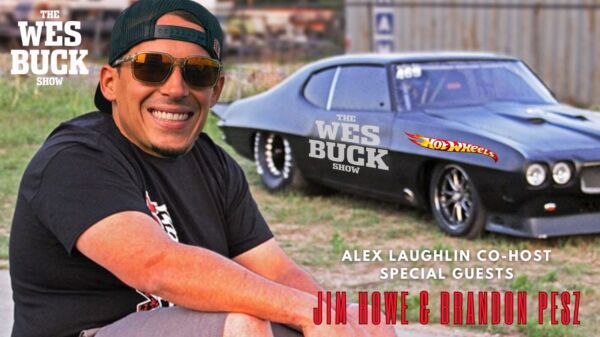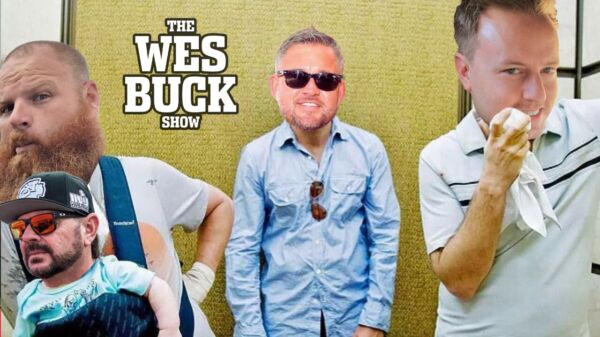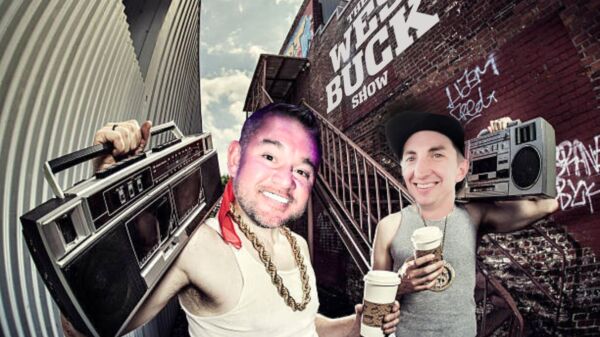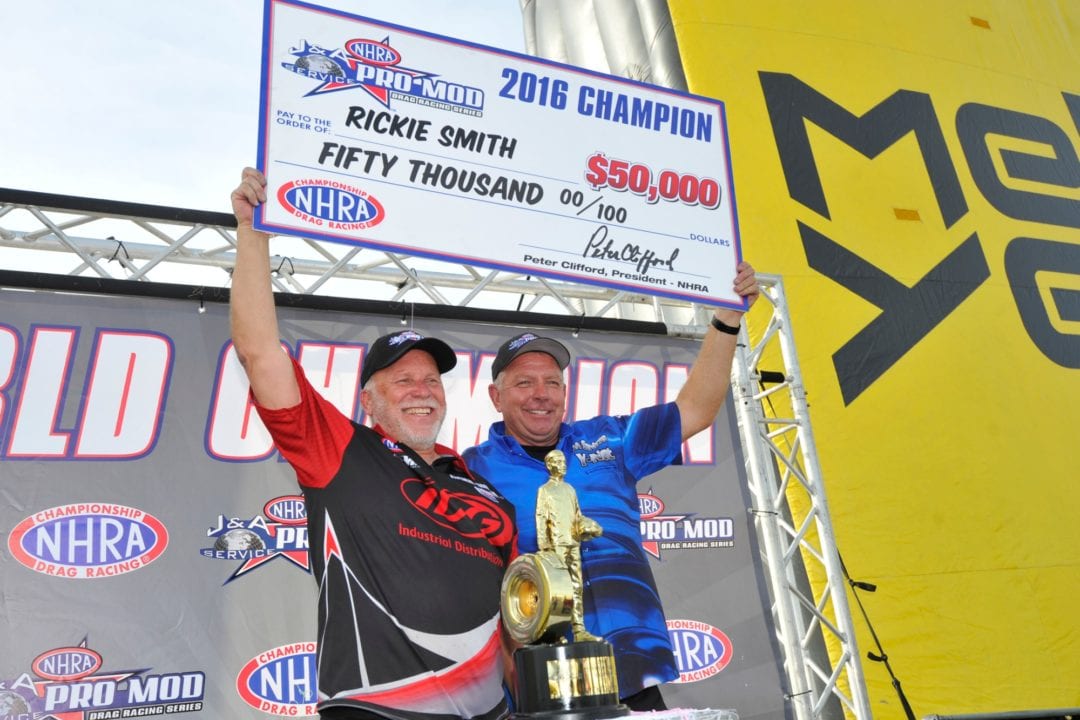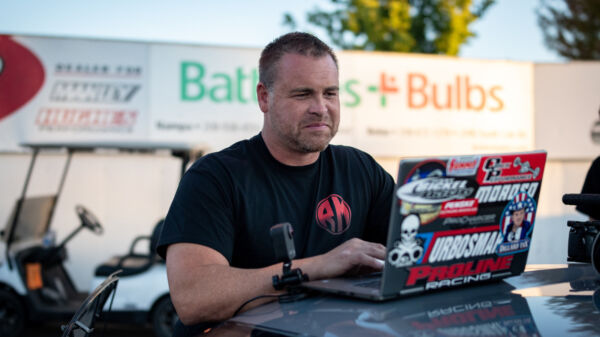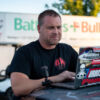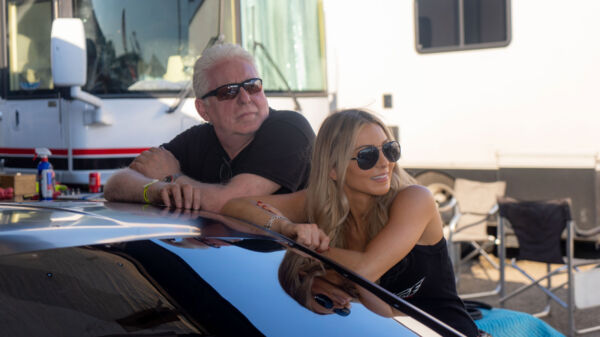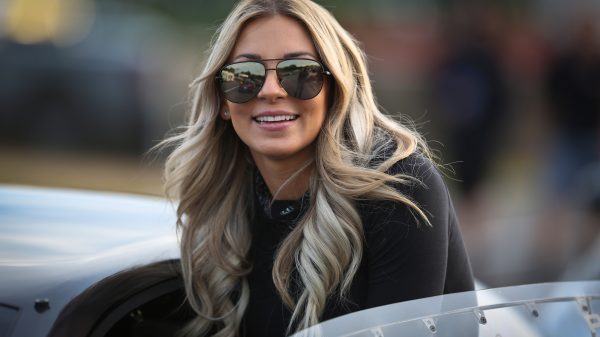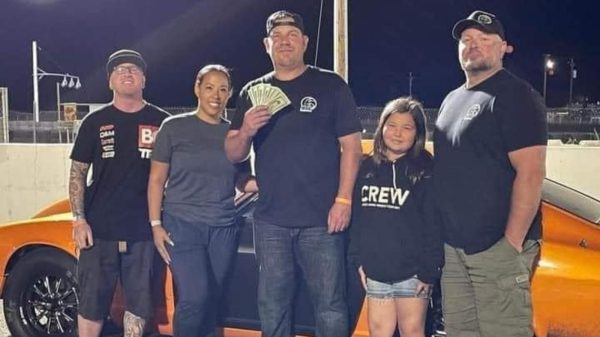Becoming a champion is something every drag racer dreams about, but staying a champion is something that is exponentially more difficult. Racing with a target on your back is no easy task, as everyone instantly has you in their sights. There’s callouts, teams forming just to knock you off, trash talk upon trash talk and, if you’re really good, rule changes that can make things even more difficult. In short, it takes a special racer to not only race out in front, but also stay out in front. Thanks to the thoughts of some of the elite in the sport, we can see just how hard it is to maintain success at a championship level.
DRAG ILLUSTRATED spoke with longtime standouts Jason Line, who just won his third NHRA Pro Stock world championship last year; Troy Coughlin, a two-time NHRA Pro Mod world champ; and Rickie Smith, who has three NHRA Pro Mod titles in the past four years and a bevy of additional world titles in his legendary career, about the aspect of racing out in front and staying at the top of the mountain. The differences in their personalities give a complex and insightful look at just how difficult it is to stay at the top of a grueling sport.
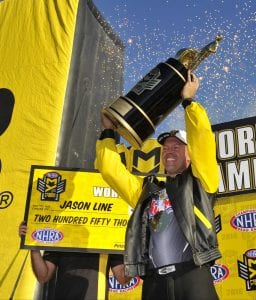 Line is most certainly drag racing’s Bill Belichick: incredibly successful (46 career wins to go with the three championships, including nine in the past 25 races), never eager to pat himself on the back and always looking ahead to the next challenge. He’s never been one to revel in success, but it’s worked for him and it’s one reason why he’s had a prolonged stay in one of the sport’s most fickle classes. It was perhaps best illustrated in 2016, when he dominated and won eight races even as Pro Stock underwent a massive overhaul.
Line is most certainly drag racing’s Bill Belichick: incredibly successful (46 career wins to go with the three championships, including nine in the past 25 races), never eager to pat himself on the back and always looking ahead to the next challenge. He’s never been one to revel in success, but it’s worked for him and it’s one reason why he’s had a prolonged stay in one of the sport’s most fickle classes. It was perhaps best illustrated in 2016, when he dominated and won eight races even as Pro Stock underwent a massive overhaul.
Coughlin is part of an iconic family name in the sport, but he’s carved out his own path at the top in Pro Mod. For this piece, he focused on the last couple seasons and some of the changes his turbo car has had to deal with in the wild world of Pro Mod. But rolling with those punches and still coming out on top is something he has savored, and those moments make all the challenges worthwhile.
Smith, meanwhile, has 40 years of sitting at the top to draw from, using those experiences – and ones before his racing career even started – to help mold himself into a consistent winner. With that kind of length in the spotlight, Smith has seen it all: pre-Internet trash talk, the advent of message board call-outs, one rule change after another and much more. But relying on an impressive work ethic, Smith has seemingly always managed to rise above it.
All three talked about racing out in front, the challenges that presents, avoiding all the drama in trying to stay at the top and, of course, how special it feels when things come together year after year.
DRAG ILLUSTRATED: It can be difficult racing out front with a target constantly on your back. How do you handle that when people are gunning for you year after year?
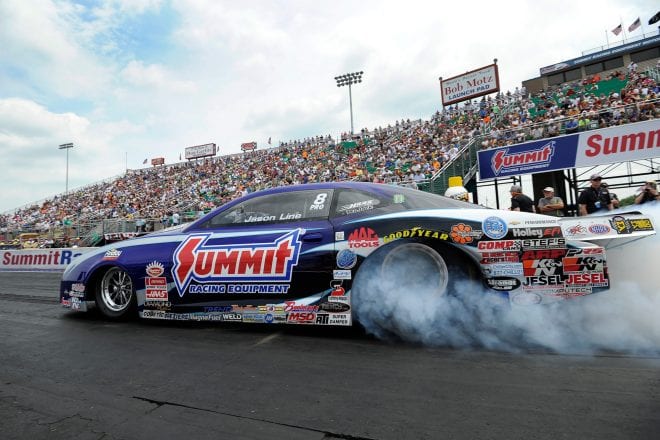
JASON LINE: To be honest, and I think a lot of people think about that, but I’ve never been one to think about that a whole lot. I always feel like I’m an underdog. I say it and people give me a hard time about saying it, but I say it all the time. I’m not the best driver out there, that’s for sure. I’m trying to do the best job I can and I consider myself an underdog, no matter what. So, whether I am or am not, that’s up to somebody else to decide, but that’s how I look at myself. It’s always been that way and I’ve always felt that way since I started bracket racing when I was 15 years old. I’ve always had that same mindset and it’s probably just the way I’m wired. That is what I feel and I’m okay with it. I’m out there to try and do the best that I can and make somebody beat me. I don’t want to give it to them; I want to make them earn it.
TROY COUGHLIN: It’s two answers to the question. When you’re racing with a target on your back, you can go from zero to hero and hero to zero in a matter of one run, which is five seconds in the quarter-mile. But it’s really awesome to be in that position and I think it has an advantage to it, for sure, when you do have that (target) after winning races and championships. You just stay in good communication with your guys and take it one round at a time, and just put your best foot forward every time. The person that makes the least amount of mistakes usually winds up on top.
RICKIE SMITH: That’s a good question. About the time you think you’ve figured out how to handle it, something else gets thrown at you. I’ve had a hell of a career, without a doubt, but it seems like since about my second championship, which was 1977, there’s been a lot of people trying to put me out, team up against me, do this, do that and there’s a lot of smack-talkers out there. But I just do my deal. I’m old-school, I don’t get on the Internet and run my jaw, and my plan has always been and always will be until I retire is let the scoreboard do my talking.
At what point in your career did you realize there was always going to be that target on your back? Was there something that helped you learn to deal with that prospect?
TC: It’s funny you say it, because a lot times when you’re racing guys, whether it’s a full-time guy on the tour or a guy that hits just a couple races, it’s kind of just the opposite. You’re trying to take them down with everything you’ve got because the class is so vulnerable to cars getting down all the time. It’s a lot of horsepower with a short wheelbase and it’s tough. It’s competitive and it’s tough to keep them consistent and fast, so really you treat everyone the same. Anybody who qualifies in the top 16 can definitely win the race and I treat everyone the same. You have to because they’re doing the same thing to you. You have to be on your game 100 percent of the time.
RS: I think playing football in school and wrestling was probably the best thing I’ve ever done to learn self-discipline. In wrestling, it’s one-on-one. There’s nobody else to help you and you’re doing it yourself. That’s probably the best thing that helped me to deal with life later on. You just have to believe in yourself that you’re good, that you’re as good as anybody out there. I feel like I’m as good as anybody out there and I don’t pay a lot of attention to them. I can smack talk. I’ve done it with Ronnie Sox and Warren Johnson and (Bob) Glidden. We’ve all had our times. That don’t bother me, but my deal is just keep my head down and have confidence in myself. I don’t care who you are, if you don’t believe in yourself and what you can do, you can get messed up bad by letting people talk junk to you. The whole thing in life and everything is believing in yourself.
When you have people coming after you, there’s always the potential for drama and stress. If it’s something like trash talk, calling you out or teams coming specifically after you, how do handle that?
JL: Everybody handles stress differently, and honestly I stress out over a lot of things, but I don’t know if I stress out over (drama). That’s probably just my way of handling it, telling myself that’s how it is. We’re all wired a little bit different and that’s just the way I am.
TC: How to deal with people that are coming up and trying to mess with you? I think over the years of racing  and bracket racing, you’re dealing with the best bull-shitters in the world. So when you get into the Pro Stock and Pro Mod ranks, and stuff like that, you just tune it out, like it’s just not there. You’re out there with the goal to win and a tune-up that’s damn near as fast as the thing will go. So it’s just balancing everything. I think over the years I’ve gotten used to it, and every now and then you smirk and piss somebody off, but that’s racing. The TV people have said to us numerous times, ‘You guys need to continue to create drama,’ so I’m like, ‘That’s cool.’ That’s been more fun because I’ve always tried to stay out of the way and race our race, but it’s always fun to stir things up a little.
and bracket racing, you’re dealing with the best bull-shitters in the world. So when you get into the Pro Stock and Pro Mod ranks, and stuff like that, you just tune it out, like it’s just not there. You’re out there with the goal to win and a tune-up that’s damn near as fast as the thing will go. So it’s just balancing everything. I think over the years I’ve gotten used to it, and every now and then you smirk and piss somebody off, but that’s racing. The TV people have said to us numerous times, ‘You guys need to continue to create drama,’ so I’m like, ‘That’s cool.’ That’s been more fun because I’ve always tried to stay out of the way and race our race, but it’s always fun to stir things up a little.
RS: I think what’s helped me more than anything is I’ve had major sponsors most of my career. When you’ve got major companies behind you, you can’t be a loudmouth out here. You can piss off a lot of people, then they start jawing and big sponsors worry about people taking the wrong attitude toward them and not buying their product or this or that. It’s been 85 percent of my career where I’ve had good sponsors, and you just can’t go out there and say what you want to say sometimes. You’ve got to bite your lip, turn your cheek and just go light up the scoreboard again. That’s the only way you can do it. It’s a known truth – I wouldn’t have what I have and be where I’m at today if I had gotten online and run my mouth sometimes when I wanted to. Trust me, I wanted to say a lot of stuff over the years, but I just had to bite my lip and go home, brush it off and go again.
As the perceived racer out in front, how do you feel when there are frequent rule changes with your particular class?
JL: I always feel like it’s to knock you down, but I don’t know, maybe that’s not what it is for. In the past, I can’t say that I’ve embraced rule changes. After last year, I would like to lobby for some more. Right now at this point in my life – and maybe last year gave me a little bit of confidence – I certainly have a lot of confidence in our team’s ability to react to rule changes and adapt to them. We have a lot of talented people working for us, so I feel okay with the rule changes, as long as they’re not too costly. Cost is such a big deal now and nobody looks forward to incurring more cost.
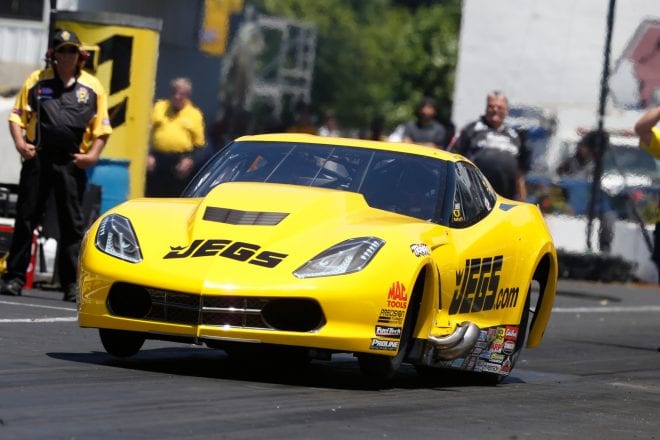
TC: The only thing that’s really dramatic is the rules and the way they change, but that’s racing. There’s going to be rule changes that are good for you and rule changes that aren’t good for you. How do you deal with that? I think just staying in tight, good communications with the team, saying we need everything we can get out of this thing in every single run, and then make decisions from there. My mindset is these are the rules, NHRA is not going to change it, so what can we do to make this thing fast inside these rules? That takes a group of people on the team, a group of people in the engine shop and a group of people that tune the chassis. You sit down, write down the pros and cons of it and how we can better ourselves, make more power and it just takes a big group of people to start bouncing ideas off each other. When you’ve got a class that has three or four power adders and they’re all fast and competitive, that’s drama itself. Some of the rule changes the supercharged guys got, it should benefit them quite a bit, so we’ve got to work on our stuff, but we have and we’ll come out faster than we did last year.
RS: We’ve all been really close through this whole (Pro Mod) thing, other than the turbo car. The turbo car has just been so far out the last three years, they just play with us. The biggest thing that’s helped me cope with it is, luckily, I’ve had a sponsor with IDG and Charlie Lingenfelter, and they’ve realized what’s going on. They understand what’s going on with the rule changes. If it hadn’t been for that and I had to explain this to Joe Blow who had no idea what’s going on, it would have been a tough sell to my sponsor. Luckily, Charlie knew the deal.
It’s one thing to have everything go right for one season and it becomes a success, and it’s quite another to keep success going year after year. What has stood out to you as far as keys to consistently being successful over a long period?
JL: There’s no question it requires work ethic. That’s your biggest asset. You’ve got to be able to work at it hard and that’s the biggest thing. (Teammate and four-time world champion) Greg (Anderson) is very intense and you’re not going to outwork him. He’s a working machine. If you’re looking for inspiration to put in effort, he’s your guy. He certainly drives everyone to work, and that’s a big deal. At the same it’s not about panicking, it’s about taking an analytical approach to everything and applying that with a little desire and work ethic. With all that, I think you can accomplish a lot.
TC: Again, I think it’s a big communication factor with your team efforts, trying to stay abreast of what’s going on, sometimes even on a daily basis, taking the guidelines you have and trying to make the best spin on it. That’s the passion we have that keeps us driving that way, and we just don’t quit. NHRA took three pounds of boost away from us when we went to Norwalk (last year), so that’s a pretty good hit. I said to the guys and the guys in the engine shop, ‘Let’s go back to work and let’s work on everything. We need to pick this thing back up.’ These guys down at Pro Line (Racing) and in the JEGS.com shop put their heads together and we went and tested a lot before Indy, and that thing was three or four hundredths quicker than everybody else on the property. A couple of guys came to us and said, ‘Man, you guys lost three pounds of boost and it didn’t seem to affect you.’ And I said to them, ‘Well you should have seen the checkbook.’ The amount of hours and the amount of testing that was done paid off. Hard work and passion and good sponsorship, it takes it all to do it.
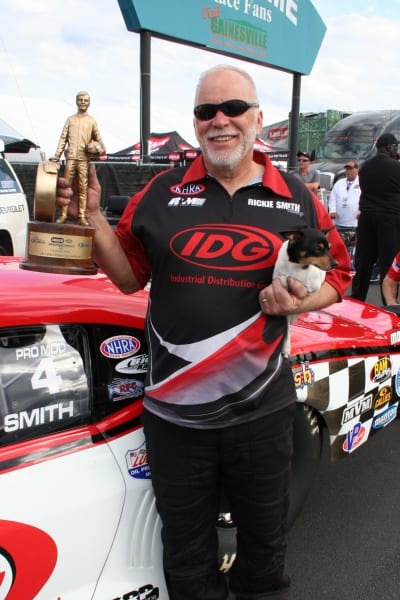 RS: Anybody who’s grown up around me knows I refuse to lose. That’s my motto. It’s been tough sometimes, but I know when I’m not competitive I don’t have the money to run with these guys. That’s the reason I didn’t race off and on for years. The biggest thing is you need to have a little bit of money to compete with these guys. You can’t win championships if you’re not prepared, and that’s been my thing – trying to be prepared. When you give money to somebody good, you can’t fight money and good. You can fight money and bad.
RS: Anybody who’s grown up around me knows I refuse to lose. That’s my motto. It’s been tough sometimes, but I know when I’m not competitive I don’t have the money to run with these guys. That’s the reason I didn’t race off and on for years. The biggest thing is you need to have a little bit of money to compete with these guys. You can’t win championships if you’re not prepared, and that’s been my thing – trying to be prepared. When you give money to somebody good, you can’t fight money and good. You can fight money and bad.
I’m not saying I’ve dominated (Pro Mod), but I’ve done awfully good three out of the last four years winning a championship, but I got in a little bit of a money situation where I could find a sponsor and be competitive.
Every time I’ve had a little bit of a chance to do the program like I needed to do it, not the top of the line, not the middle of the line, basically the third or the fourth in the line, when I had the kind of decent money that I could go buy the parts, I’m not saying dominated, but I’ve been at the top of the pack every time I’ve been able to do that. That’s what has happened at the end of my career. IDG has come along and given me this opportunity, and it’s been awesome.
Last question. When you have a certain number of things seemingly stacked against you, and you’ve got teams specifically coming after you and calling you out, how satisfying is it when you still come out on top?
JL: At some point in my life I’m going to look back and say it’s very satisfying. Right now, I’m busy looking to get better all the time and keep working so that I don’t have to worry about it. I don’t really stop and think about it; it’s just not something that I do. But, you know, come on in, the water’s fine. This class is not for everybody, there’s no question about it. It takes a lot of work and a lot of effort, and you’re not going to ho-hum your way to the top, that’s for sure. It takes a lot of work. You can’t sit back and enjoy it for too long or you’re going to get crushed.
TC: It’s the best feeling in the world because it’s always fun to plot out a plan with your team members – the guys you work with on all this stuff – and see it come to fruition and be fast and winning races. There’s nothing better than that. That feeling, not only for me, but for my family and all the guys on the team, that’s a big feather in everyone’s cap. It’s the best feeling because you’re working so hard at this program and somebody comes up and kind of kicks you in the nuts, and you go back to work and come out swinging and you kick all the rest of them in the nuts. It’s a great feeling and that’s how it should be.
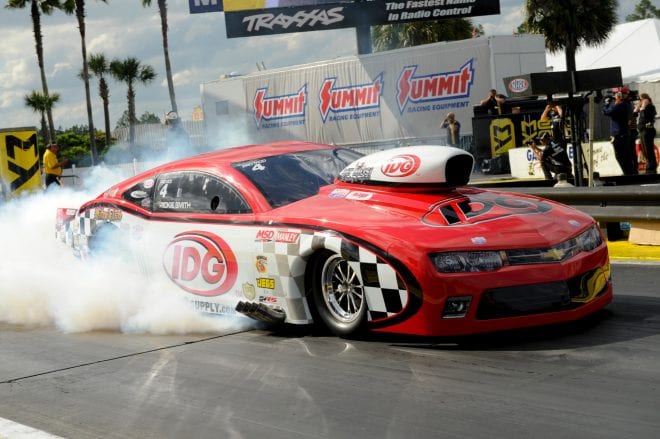
RS: Without a doubt, it’s awesome. That’s basically what I’m running on now. My body and my back, and my legs are telling me to get out of this deal. I’ll be 64 at the end of this year and it’s just been an awesome ride. I’m just tickled to death to be able to do this at my age. It’s just awesome that some of these people step up and help me out. They don’t have to do that, but I think a lot of them have seen that I have worked hard throughout my career to get here, and I’m riding a high right now. When it goes away, I’ll walk away. But it’s been awesome.
This story originally appeared in Drag Illustrated Issue No. 117, the Champions Issue, in January of 2017.
Photographs by NHRA and RPM
This story was originally published on April 19, 2017. 
